Neuropsychological: Humans are unique
Human beings are a nervous system (including a brain), being carried around by a body that allows us to interact with the world. So essentially, we are brains that behave through our body. Behaviour is initiated or inhibited in the brain in order to meet the needs of that system.
Neurological = brain and nervous system
Psychological = behaviour
The Wilding theory of human needs has been formulated not just by observing human behaviour, but by relating what we see to what we know about how the brain, nervous system, and body, impact our behaviour. Humans are complex, and our brains are unique in many ways. In order to look at human needs and behaviour holistically, we must look at all five systems that directly influence our behaviour. These are interdependent. They interact with each other consistently:
Physical regulation (body)
Cognitive regulation (mind)
Sensory regulation (sensation)
Emotional regulation (feelings)
Psychological regulation (drivers of behaviour)
Needs for things such as nutrition, hydration, temperature etc.
Our need to be able to think clearly, and make choices.
The need to feel comfortable in our environment and within our own body.
Our need to experience emotion, but not feel overwhelmed by it.
The regulation of our behaviour requires that the above elements are regulated as well as the drivers mentioned below. These are the broad categories that explain what our brain is wired to make us do beyond the regulation of the above.
A separate article will be written on each of these in more detail. When available, you will be able to click on the items in the list above to go to that article. Furthermore, you may enjoy my article on What is a human need is. “What is a human need?“
Wilding theory of regulation
When we consider our most basic human systems, we can notice a pattern that nothing remains static. No aspect of being human (and no aspect of nature in fact) is still. That is to say, everything operates most effectively when it fluctuates between states, and this is easy to observe in considering our physical needs. We need enough nutrition but not too much. Our breathing rate needs to change and adapt in different circumstances and then re-balance into a usual rhythm. Moreover, I could describe every element of our basic needs this way.
When you look further into each of the areas described above, this pattern is still present. We need sensory input, but not too much. Our emotions are essential, but we need to feel them without being overwhelmed. We need to be able to take in new information but if we take it too far, we will need a lot of rest. This realisation let me to my first breakthrough. Fundamentally, humans need regulation. All of our behaviour is driven by us seeking relative balance depending on our own personal neurology, and our current circumstances.
We, as humans, function best when we are wholly well regulated, in the five broad areas above.
Wilding theory of psychological regulation
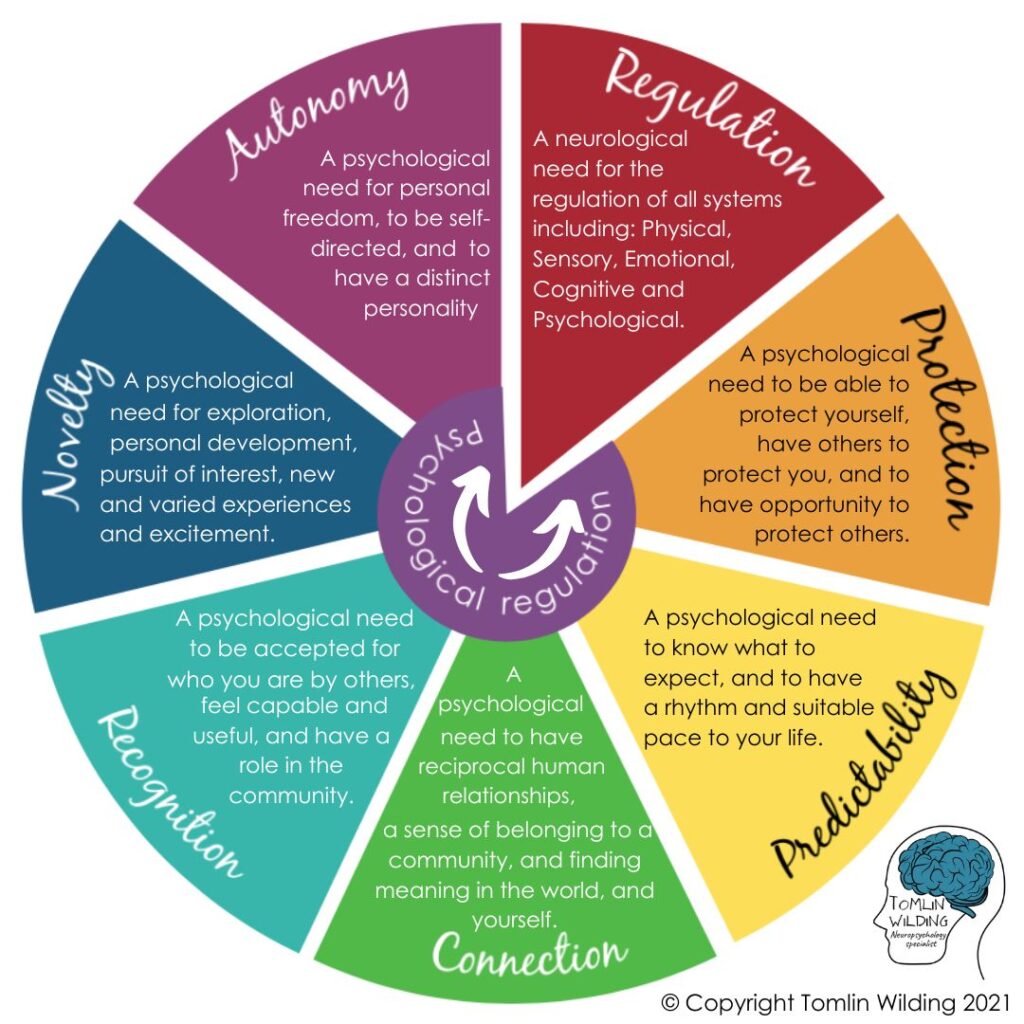
To be psychologically regulated means to be acting to support the wiring of our brains. Our behaviour is driven by all of the above aspects, so we act to keep ourselves physically, sensorily, cognitively and emotionally regulated. Those aspects impact our psychological regulation (shown on the wheel in red). Further to this, there are six drivers of behaviour that our brains are wired for. These are:
- Protection
- Predictability
- Connection
- Recognition
- Autonomy
- Novelty
Each of these is summarised below. A separate article will be written on each of these in more detail. When available, you will be able to click on the heading or the image for each one to go to that article.
Protection
Human brains are wired to drive us to protect. We act in a number of different ways to meet this need, and due to our being a community species, our need for protection includes interaction with other humans. Our protection need includes the need to:
- Be protected, and cared for, by others.
- Protect and care for ourselves.
- Create and maintain protected spaces.
- Protect and care for others.

Predictability
Our brains are wired to seek out predictability. For example, we notice, find, and create patterns and rhythms that help us to know what to expect and be ready for it. Our predictability need includes the need to:
- Know what to expect through familiarity and rhythm.
- Find or create patterns and rituals.
- Experience repetition
- Feel comfortable with the pace that things happen.
- Know what is expected of us in a situation.
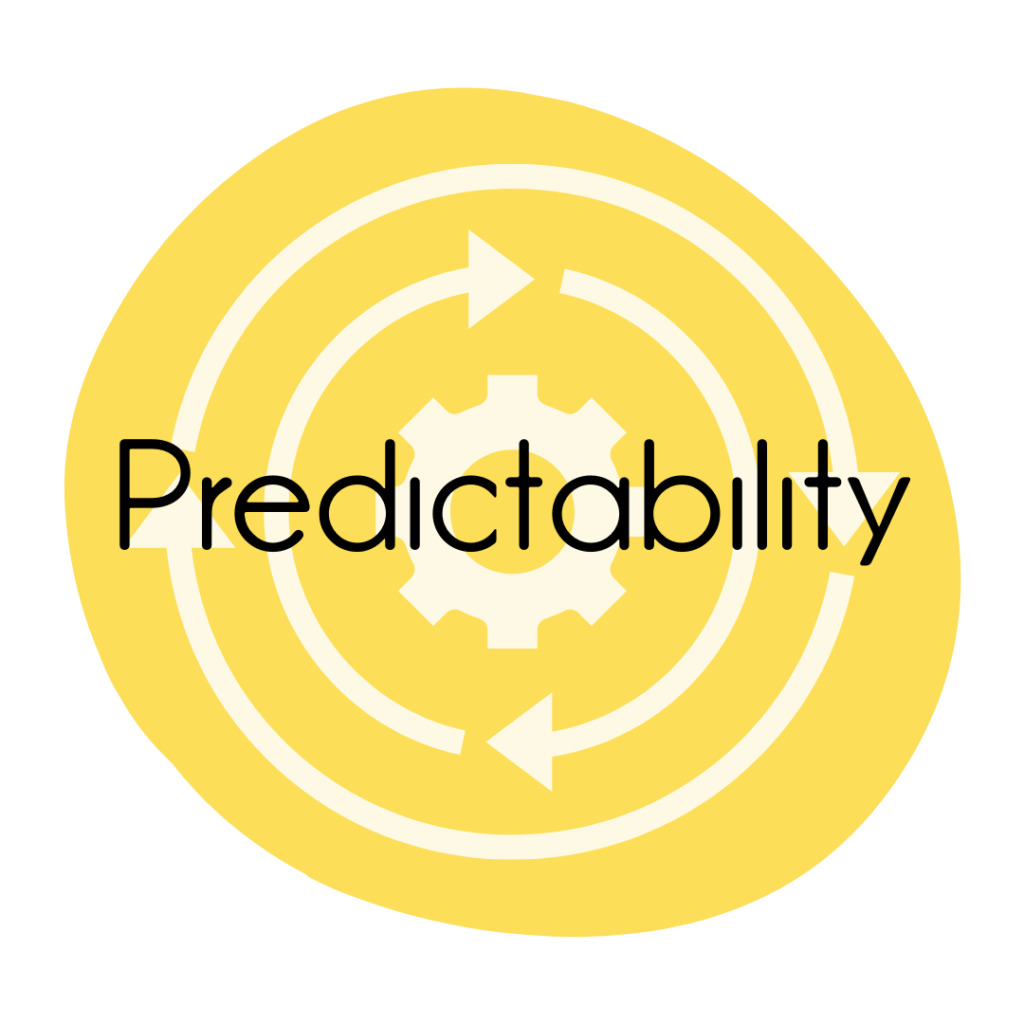
Connection
Human brains are wired for connection. This means that we seek out meaningful relationships across our experience. Our connection need includes the need to:
- Have significant and sustained human relationships, and to seek out reciprocal interaction with other human beings.
- Feel a sense of belonging to a community (or communities), including feeling like you belong to humanity as one collective.
- Have a relationship with place, purpose and origin. This includes seeking answers about what it means to be human, feeling like we need to spend time in nature and needing to find meaning in our lives.
- Be included and involved in groups, and their activities.
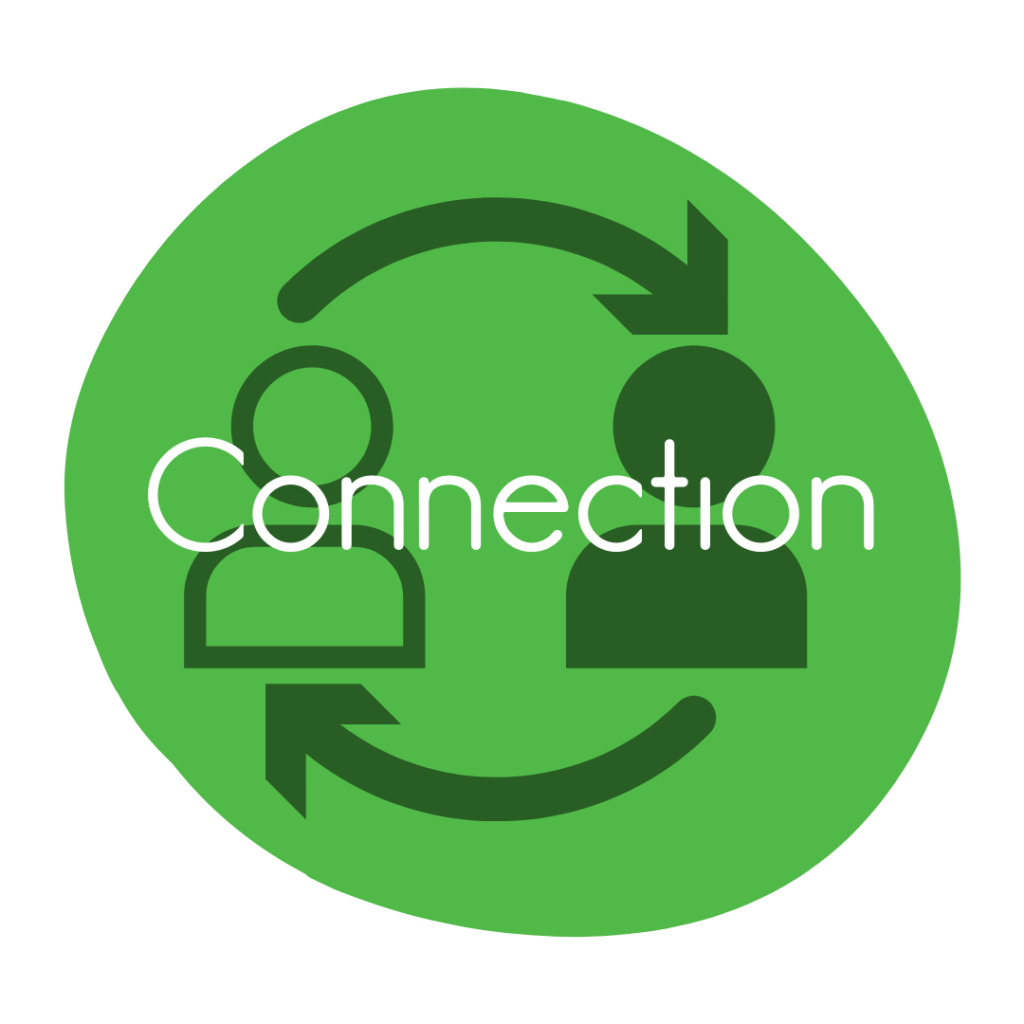
Recognition
Our brains are wired to act in pursuit of recognition as useful members of our community with a worthy role. Our need for recognition includes the need to:
- Feel capable of contributing by having a suitable role in a community.
- Have yourself and others accept and value who you are and what you do.
- Feel that others notice our limitations and struggles, and that they are willing to accommodate them within the group.
- Be heard, seen and understood.
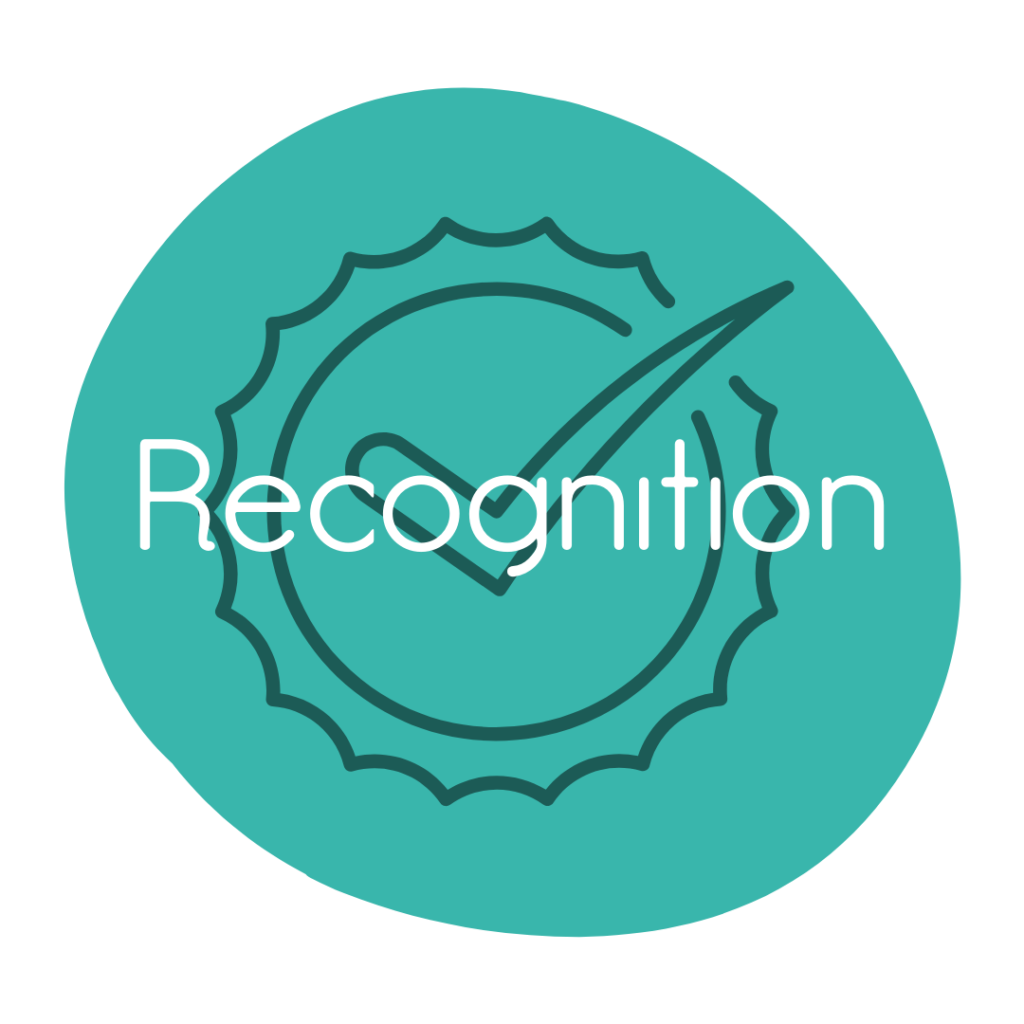
Novelty
Human brains are wired to seek out new knowledge, new understanding and new experiences. Our need for novelty includes the need to:
- Learn new information and develop new skills.
- Explore our environment and discover new experiences.
- Experience variation and excitement in our lives.
- Create new things.
- Pursue our own interests.
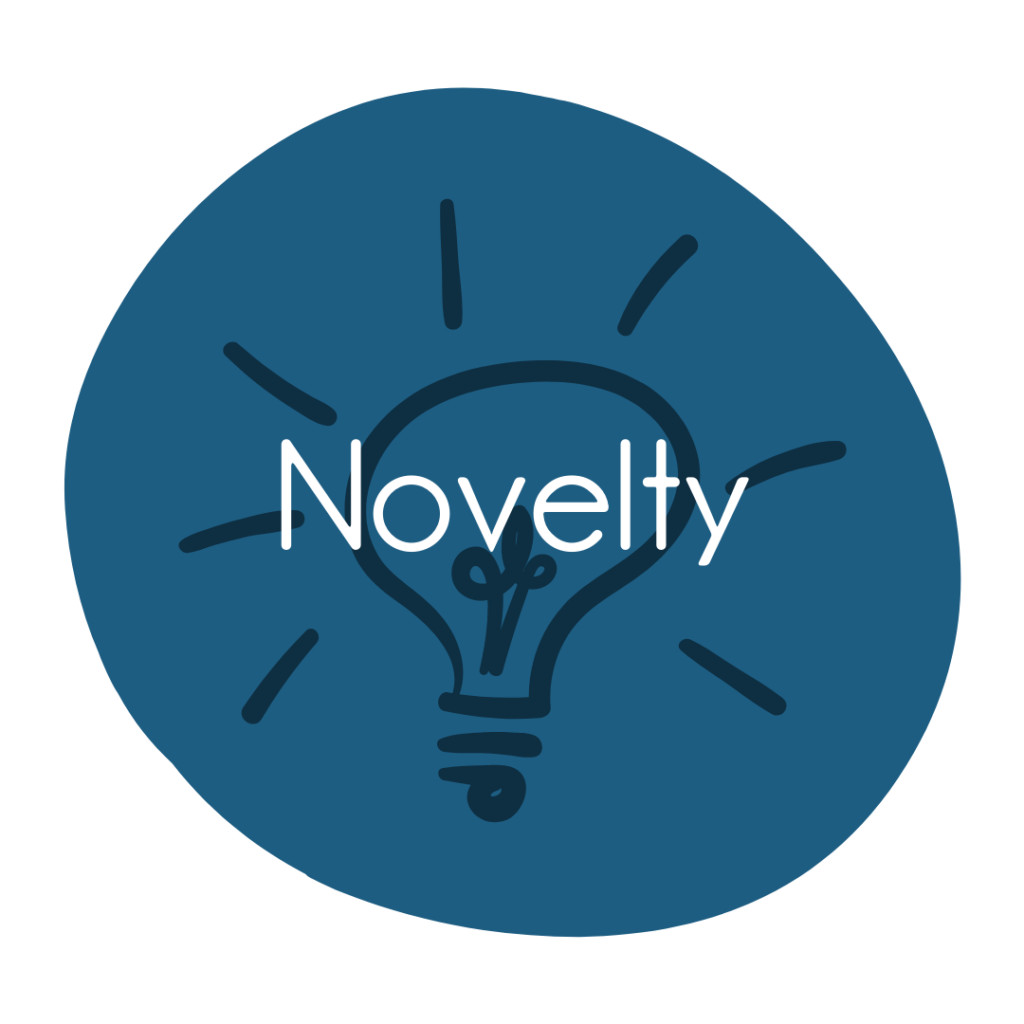
Autonomy
Our brains are wired in such a way that we have a deep sense of self that is unique. This drives us to seek out autonomy. Our need for autonomy includes the need to:
- Have personal freedom, and therefore make our own choices.
- Be self directed, including being able to acting for ourselves.
- Express a distinct personality that gives us a sense of individuality.
- Have our own ideas, and to hold our own personal values.
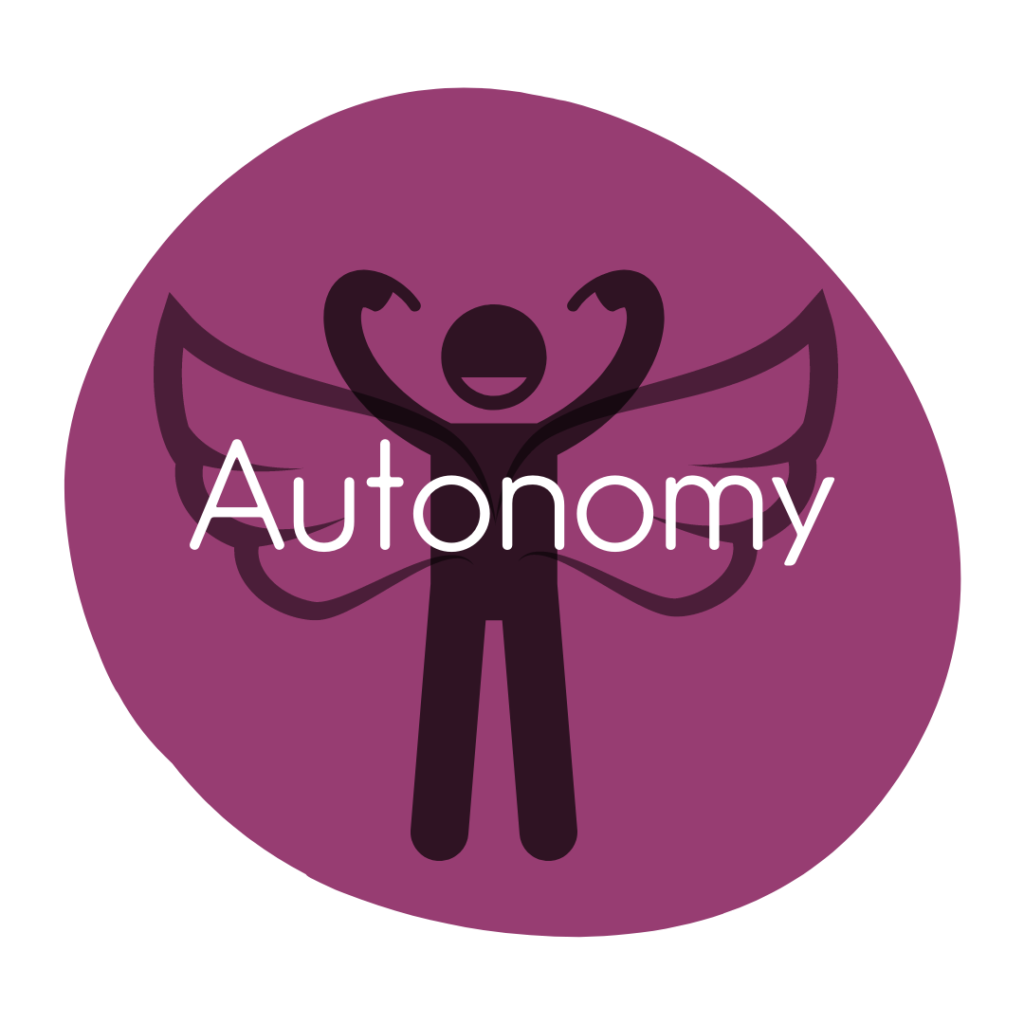
Wilding theory of a needs spectrum
You may notice that the needs have been depicted here as a wheel or a spectrum, and not as a hierarchy, as is common with needs following Maslow’s famous theory. As a result, it is depicted as such because all human beings experience all of these needs to differing degrees at all times. The intensity of these needs differs from person to person due to their own personal neurology, and from moment to moment as situations change and as needs are left more or less met. My preferred way to represent this in the Wilding theory, is to show a spectrum of needs where complex balances occur. This is regularly depicted as a wheel.
Having said this. it is true to some extent that a hierarchy can play a role in how we prioritise behaviours that seek to address imbalances. When trying to regulate in a given moment, we are more likely to prioritise some needs over others initially. However, there are many occasions when the hierarchy just doesn’t represent the complexity of human behaviour and so is not helpful. Both depictions can be useful.

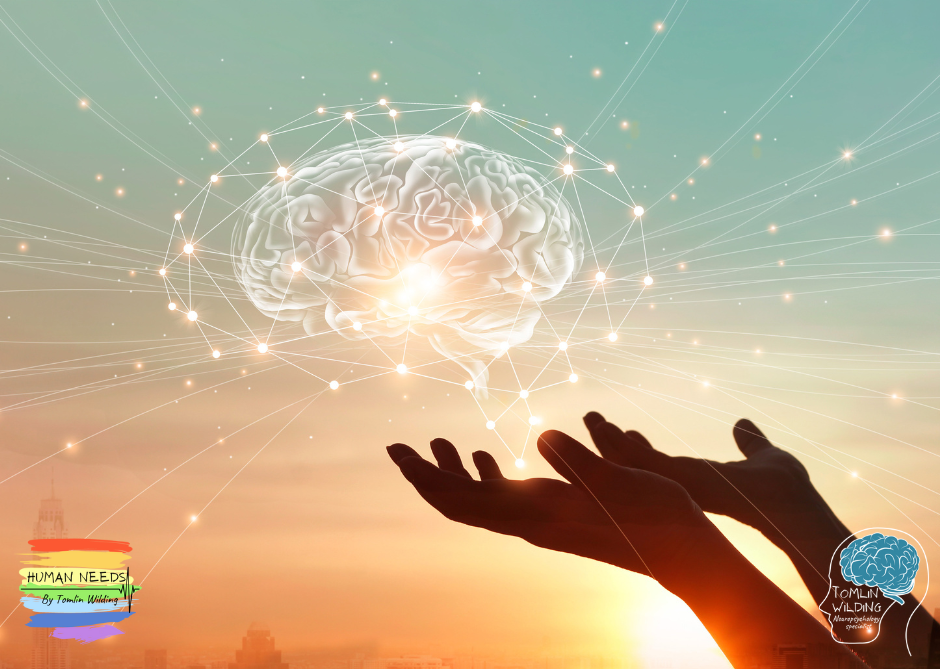
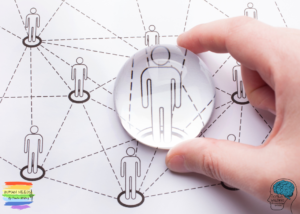


One Response
I really like your research Tomlin, I feel that the way you have explained your Wilding Theory in such an accessible way will help us humans to understand and know ourselves better. During my PGDE and Masters in education I studied Self Determination Theory and Basic Psychological Needs Theory in as much depth as my course of study would allow. Your theory builds on this and Maslow’s Hierarchy of Needs in a way which I can really identify with and value. I was recently talking about regulation with a member of our learning community when they asked me what regulation means. While I gave them a basic answer about feeling calm, balanced and that everything is okay, I am now thinking about ways to give them access to this website and the opportunity to learn more. The way that you have written so clearly about human needs could speak to all of us. Thank you Tomlin.